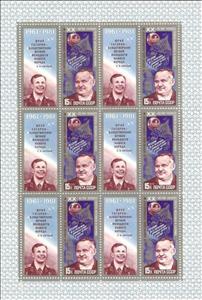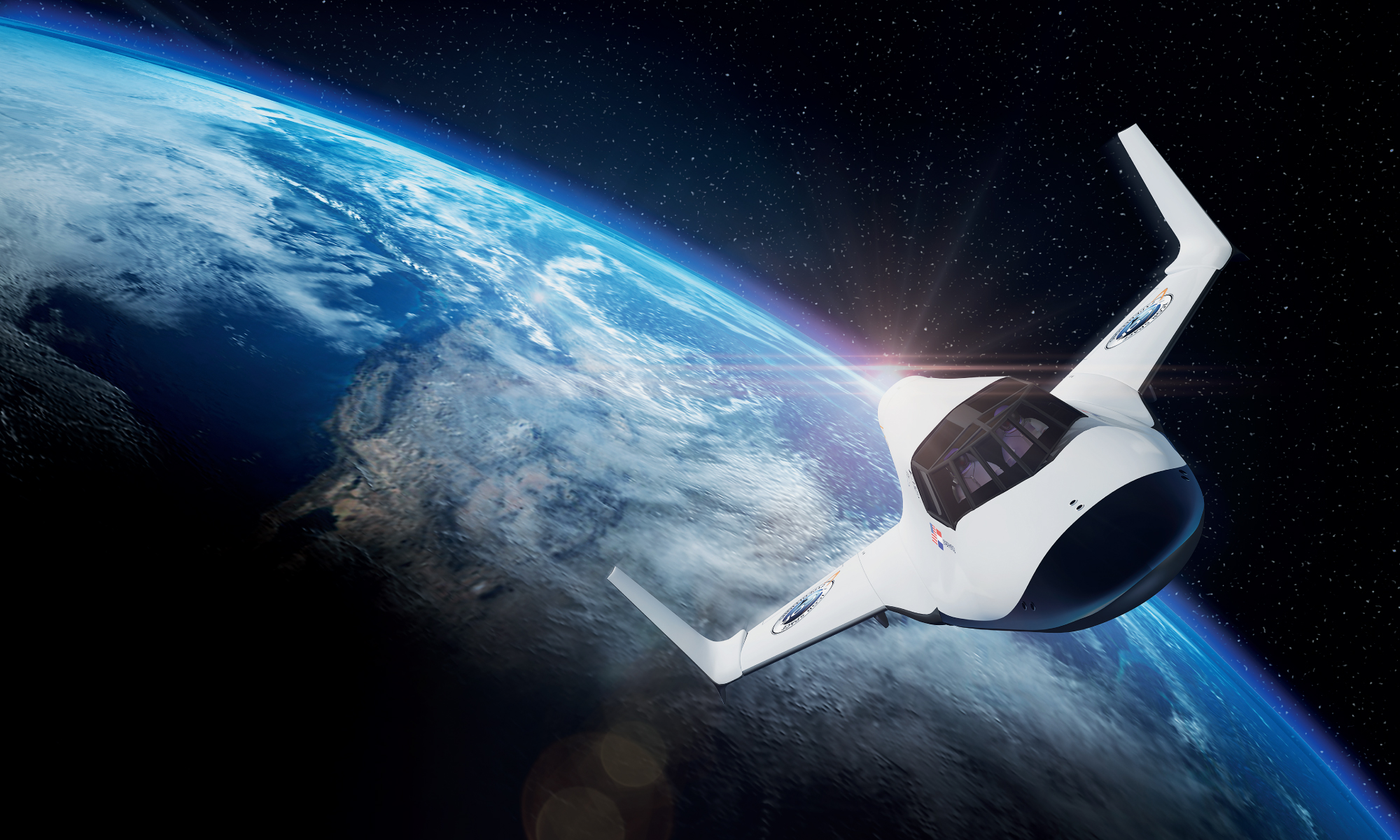Mini Sheet: Cosmonautics Day, 1981 - Sergei Korolev (Soviet Union, USSR 1981)
Cosmonautics Day, 1981 - Sergei Korolev (Soviet Union, USSR 1981)
12 April (Soviet Union, USSR ) within release 20th Anniversary of First Manned Space Flight goes into circulation Mini Sheet Cosmonautics Day, 1981 - Sergei Korolev face value 6*15 Russian kopek
| Mini Sheet Cosmonautics Day, 1981 - Sergei Korolev in catalogues | |
|---|---|
| Michel: | Mi: SU 5057KB |
Mini Sheet is square format.
Sergei Korolev was the engineer who led the early Soviet space program.Also in the issue 20th Anniversary of First Manned Space Flight:
- Mini Sheet - Cosmonautics Day, 1981 - Monument "To the Stars" face value 6*32;
- Mini Sheet - Cosmonautics Day, 1981 - Sergei Korolev face value 6*15;
- Stamp - Cosmonautics Day, 1981 - Sculpture of Yuri Gagarin, 1967 face value 50;
Mini Sheet Cosmonautics Day, 1981 - Sergei Korolev it reflects the thematic directions:
An anniversary is the date on which an event took place or an institution was founded in a previous year, and may also refer to the commemoration or celebration of that event. For example, the first event is the initial occurrence or, if planned, the inaugural of the event. One year later would be the first anniversary of that event. The word was first used for Catholic feasts to commemorate saints. Most countries celebrate national anniversaries, typically called national days. These could be the date of independence of the nation or the adoption of a new constitution or form of government. The important dates in a sitting monarch's reign may also be commemorated, an event often referred to as a "Jubilee".
Engineers, as practitioners of engineering, are professionals who invent, design, analyze, build and test machines, complex systems, structures, gadgets and materials to fulfill functional objectives and requirements while considering the limitations imposed by practicality, regulation, safety and cost.The word engineer (Latin ingeniator, the origin of the Ir. in the title of engineer in countries like Belgium and The Netherlands) is derived from the Latin words ingeniare ("to contrive, devise") and ingenium ("cleverness"). The foundational qualifications of a licensed professional engineer typically include a four-year bachelor's degree in an engineering discipline, or in some jurisdictions, a master's degree in an engineering discipline plus four to six years of peer-reviewed professional practice (culminating in a project report or thesis) and passage of engineering board examinations.
Famous People refers to the fame and public attention accorded by the mass media to individuals or groups or, occasionally, animals, but is usually applied to the persons or groups of people (celebrity couples, families, etc.) themselves who receive such a status of fame and attention. Celebrity status is often associated with wealth (commonly referred to as fame and fortune), while fame often provides opportunities to make money.
Outer space (or simply space) is the expanse that exists beyond Earth's atmosphere and between celestial bodies. It contains ultra-low levels of particle densities, constituting a near-perfect vacuum of predominantly hydrogen and helium plasma, permeated by electromagnetic radiation, cosmic rays, neutrinos, magnetic fields and dust. The baseline temperature of outer space, as set by the background radiation from the Big Bang, is 2.7 kelvins (−270 °C; −455 °F)





